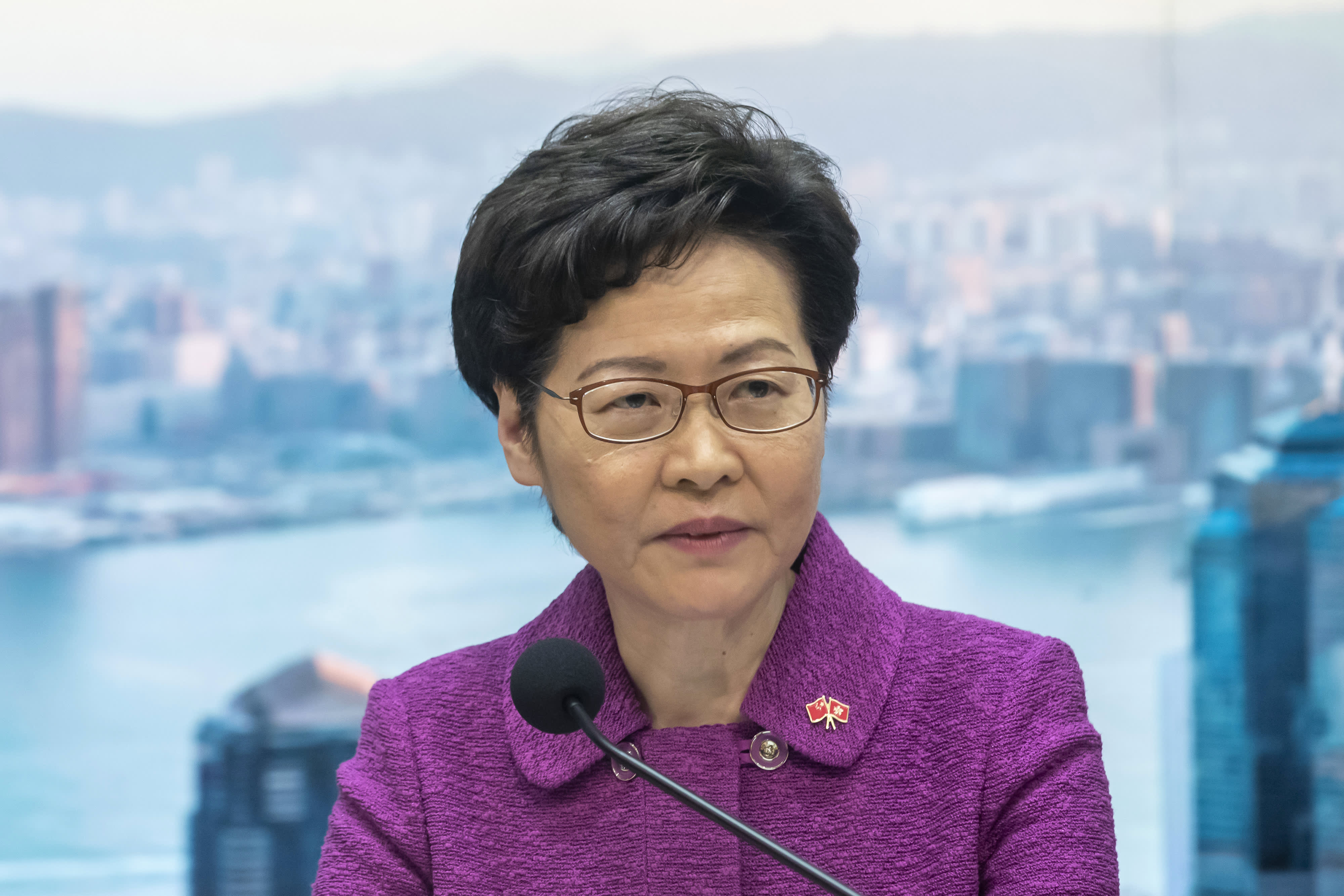
Hong Kong leader Carrie Lam told CNBC on Thursday that she’s “optimistic” the new U.S. administration under President Joe Biden will give her government “a fair hearing” with regard to the city’s controversial national security law.
The law was imposed in Hong Kong last year by the Chinese central government in Beijing — bypassing the city’s lawmakers. The Trump administration criticized the move, which became one of the issues at the center of worsening U.S.-China ties.
Lam, however, denied that Hong Kong is a sticking point between the two economic powers. Instead, she said the U.S. sometimes used the city as a “pawn” in its dealings with China.
“As far as we’re concerned, yes, we’re going through a very tough period where Hong Kong is often put on the global radar screen,” Lam told CNBC’s Emily Tan. She acknowledged there are a “couple of laws made by the U.S. Congress and the president’s executive order, which do affect Hong Kong’s business and individuals — of course, including myself.”
“But I remain optimistic that with the new U.S. administration, I hope that they will give us a fair hearing as far as the national security law is concerned,” she added.
Following the implementation of the law, the Trump administration sanctioned 11 individuals — including Lam — for “undermining Hong Kong’s autonomy” and rolled back the city’s special status under American law that treated it differently from other Chinese cities.
Hong Kong is a former British colony that was returned to Chinese rule in 1997. The city is governed under the “one country, two systems” principle and is given greater autonomy than other Chinese cities.
Lam said her government has gone to the World Trade Organization to dispute the U.S. removal of Hong Kong’s special status — but their request for a dispute settlement has been blocked by Washington.
“We always love to have what we used to have,” she said. “What we used to have, actually, should be with us but unfortunately on this front, the signal is not very positive.”
A second term?
The Hong Kong economy has been battling multiple crises over the past years, including the U.S.-China trade war that intensified in 2018, months of pro-democracy protests in 2019 and the ongoing coronavirus pandemic.
Latest available economic data showed that Hong Kong’s economy has contracted for five consecutive quarters on a year-on-year basis as of the third quarter of 2020.
The city is expected to release fourth-quarter GDP data on Friday, and official forecast is for the economy to shrink by 6.1% for the whole of last year — among the worst performance in Asia.
Lam told CNBC she hopes to see “some encouraging growth” in 2021, unless the pandemic worsens despite restrictions and vaccination.
She added that a vaccination program would be rolled out in Hong Kong next month.
The number of Covid vaccine doses the government has committed to buy is about three times Hong Kong’s population of 7.5 million, she said.
Hong Kong has been recording an increase in Covid-19 infections in recent weeks.
The city recorded more than 10,300 in cumulative cases and 176 deaths as of Thursday, according to government data. The numbers are lower than many countries and territories globally, but its economy can ill-afford further threats that dampen activity.
Lam, who took over as the city’s leader in 2017, has had a difficult tenure plugged by both political and economic challenges.
Asked if she would seek reelection when her term ends next year, she declined to answer but said: “I just try to comfort myself that very often, women are being left to do the most difficult job. And I happen to be one of them.”




